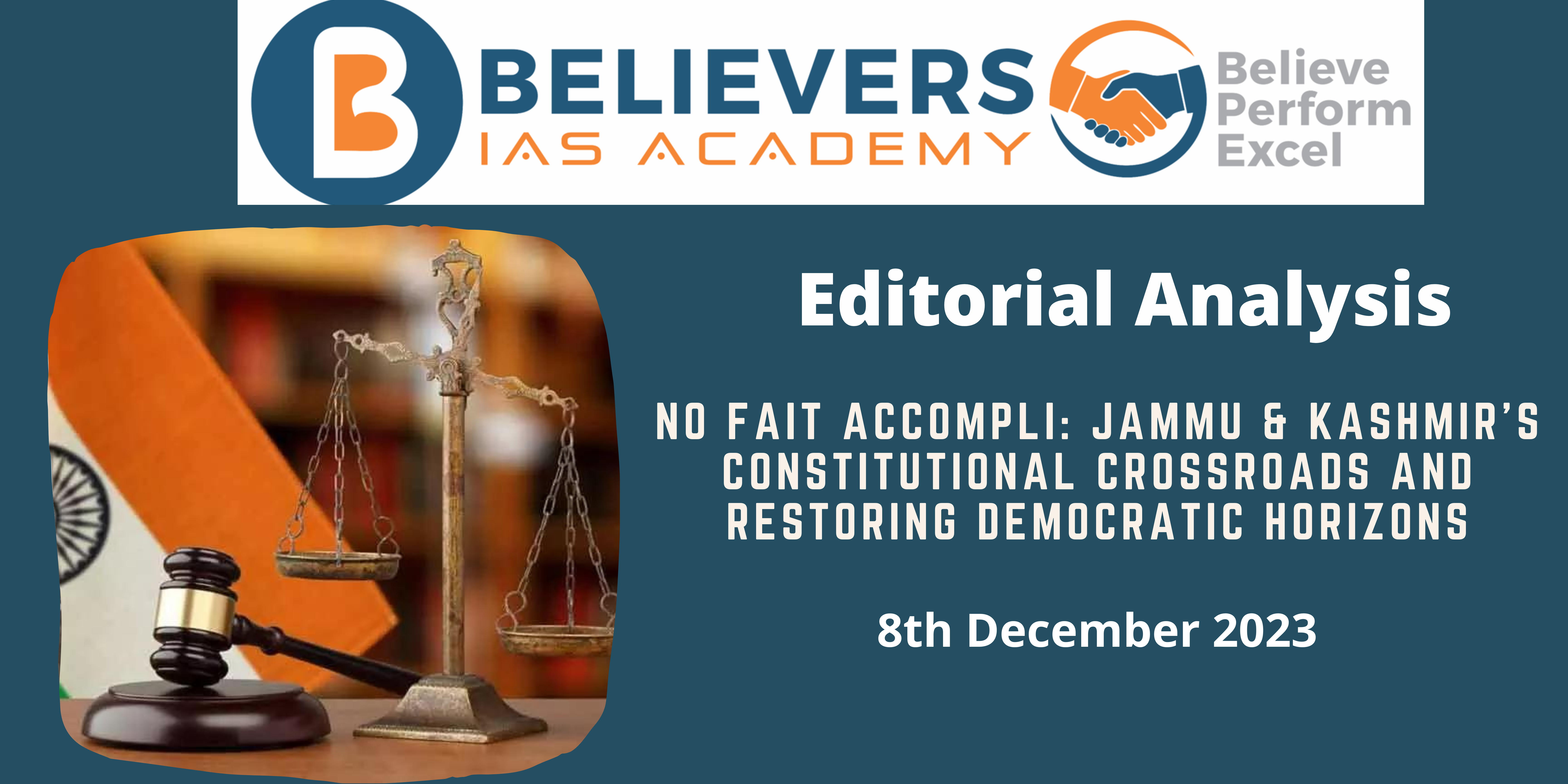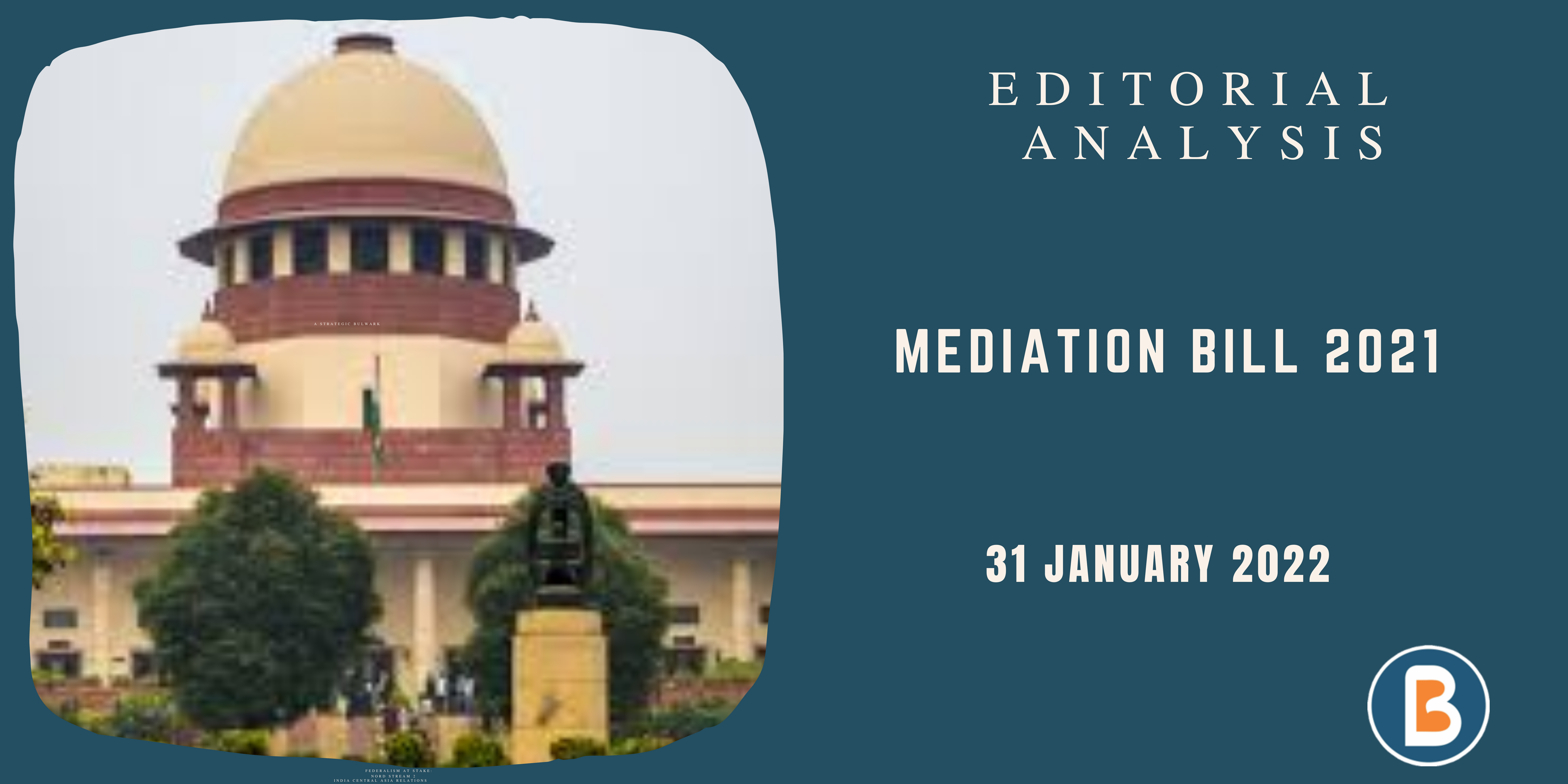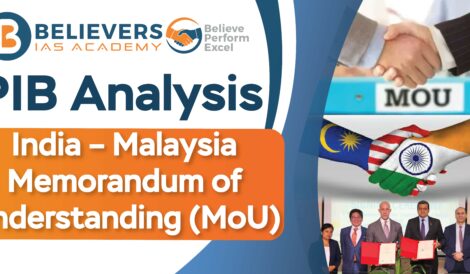No fait accompli: Jammu & Kashmir’s Constitutional Crossroads and Restoring Democratic Horizons
Context and Background:
For over five and a half years, Jammu & Kashmir has undergone significant transformations since the imposition of Governor’s rule after the collapse of its elected government.
- The abrogation of Article 370, leading to the removal of special status, and the bifurcation into Union Territories (UT) have stirred legal debates.
- Amidst this, recent legislative changes, including the Jammu and Kashmir Reorganisation (Amendment) Bill, 2023, and the Jammu and Kashmir Reservation (Amendment) Bill, 2023, have raised concerns about proceeding without awaiting the Supreme Court’s verdict on the constitutional validity of these alterations.
Relevance:
GS-02 (Government policies and interventions)
Prelims:
Article 370, Article 35A
Mains Question:
Examine the constitutional and democratic implications of the recent legislative changes in Jammu & Kashmir, considering the ongoing legal challenges to the abrogation of Article 370 and the bifurcation. Assess the necessity for the restoration of democratic processes and Statehood in the region. (250 words)
Dimensions of the Article:
- Legislative Changes and Constitutional Questions
- Lack of Involvement of Elected Representatives
- Urgency for Restoration of Democratic Processes
Legislative Changes and Constitutional Questions:
- The Lok Sabha’s recent approval of bills altering the composition of the UT’s Legislative Assembly raises questions about the propriety of such changes before the Supreme Court’s verdict on the constitutionality of Article 370’s abrogation and the bifurcation of Jammu & Kashmir.
- The amendments include an increase in the total Assembly seats, reservations for Scheduled Tribes, and alterations to the J&K Reservation Act, 2004, replacing “weak and underprivileged classes (social castes)” with “Other Backward Classes.”
Lack of Involvement of Elected Representatives:
- The absence of elected representatives from J&K in these legislative changes contributes to a perception of decisions being imposed without citizen participation.
- The suspension of political and civil liberties, arbitrary arrests, communication shutdowns, and power cuts over the past five and a half years have created an environment where political life feels constrained.
- The need for citizen inclusion in decision-making processes is emphasized.
Urgency for Restoration of Democratic Processes:
- Amidst concerns of alienation, the article stresses the immediate necessity of restoring democratic processes in J&K. Popular elections and the reinstatement of Statehood are identified as essential steps to address the void in public life.
- Emphasizing the significance of citizen participation, the restoration of democratic processes is seen as a crucial measure to pave the way for addressing longstanding issues contributing to militancy.
Way Forward:
- The primary recommendation is the prioritization of the restoration of democratic processes in Jammu & Kashmir, emphasizing the need for popular elections and the reinstatement of Statehood.
- This approach aims to bridge the existing gap in public life, foster citizen involvement, and pave the way for addressing complex and longstanding issues contributing to militancy.
Conclusion:
The restoration of democratic processes, through popular elections and the reinstatement of Statehood, emerges as the way forward to address the pressing issues facing the region and prevent further alienation of its citizens.




